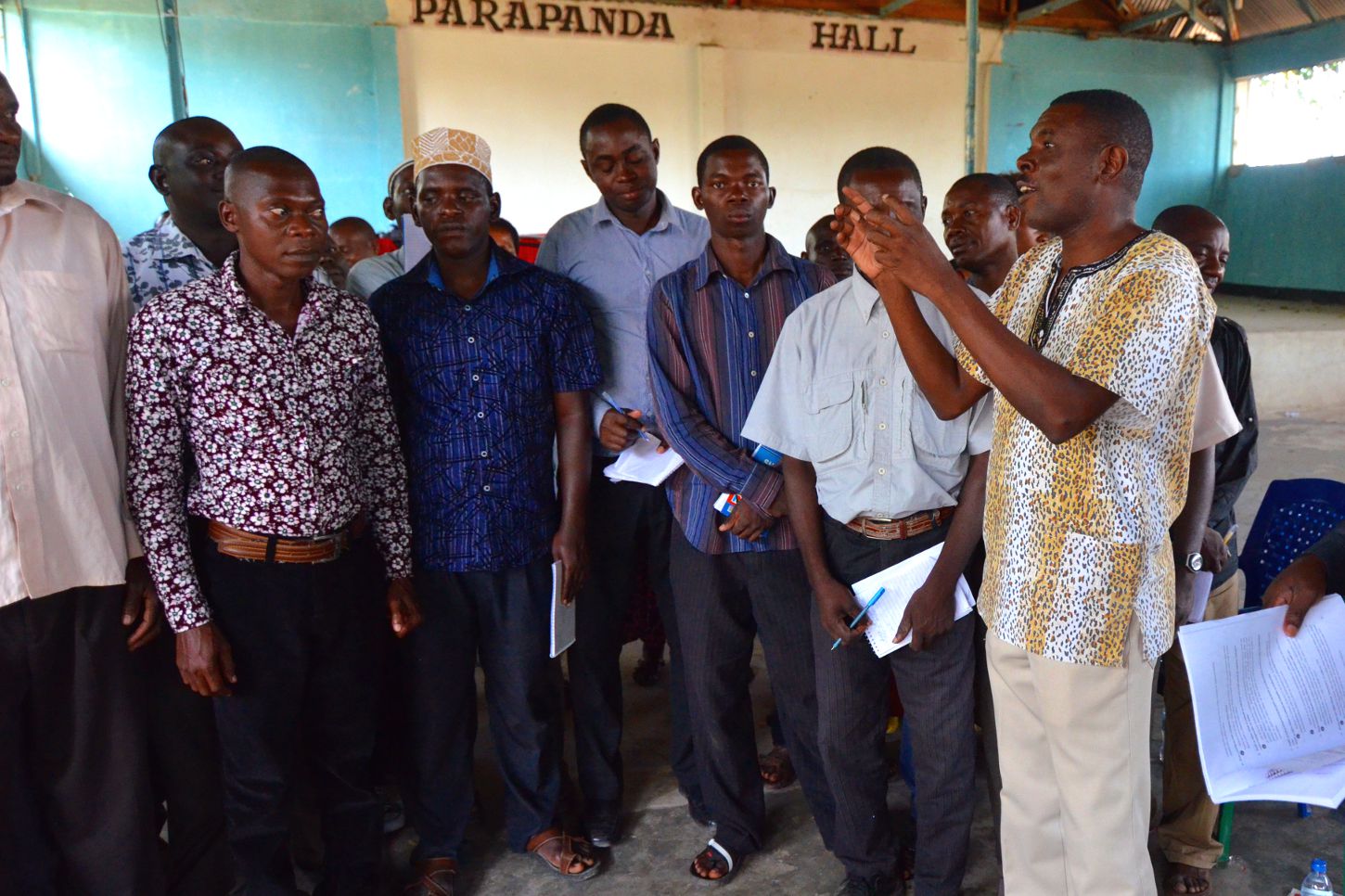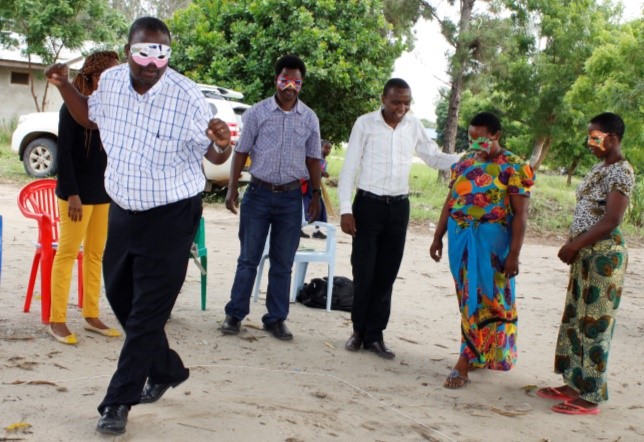 The Journey of Success: An Integrated Community Approach for an AIDS-Free Tanzania
The Journey of Success: An Integrated Community Approach for an AIDS-Free Tanzania
Thousands of communities throughout Tanzania have a new tool for the sustainable control of the HIV epidemic, thanks to a new community health resource kit from the Johns Hopkins Center for Communication Programs (CCP) and the Tanzania Communication and Development Center (TCDC).
The Safari ya Mafanikio (which means “Journey of Success” in Swahili) is a comprehensive behavior change toolkit which addresses the most important health topics facing Tanzanians today. The kit contains interactive modules that tackle HIV, malaria, tuberculosis, family planning, and maternal and child health, and was designed from the outset to empower Tanzanians at the community level with the tools to take charge of their own health.
The kit’s emphasis on participatory learning is unique, engaging participants through interactive story-telling, drama, games, metaphors, personal risk assessments and other innovative activities that inspire solution-seeking behaviors and shift mental models around deeply held cultural values.
“The twelve modules and activities in the Safari ya Mafanikio involve participants in a way that goes far beyond just discussing and understanding the issues,” says Peter Labouchere, a behavior change expert who was instrumental in developing the kit. “The kit creates learning experienceswhich ‘touch the heart, not just the head,’ and which participants can apply in a practical way to their own health and wellness issues.”
These learning experiences are designed to complement each other in a coherent manner throughout the course of each module. A lesson on how the immune system works, for example, demonstrates how white blood cells protect against infection by asking participants to act out the roles. One participant plays the role of the white blood cell, while another acts as a pathogen attacking the immune system. Later in the module, this example is revisited with additional participants to demonstrate the role that anti-retroviral treatment plays in protecting white blood cells from HIV.
Over half of the lessons in the Safari ya Mafanikio are dedicated to HIV-related topics. These include HIV prevention; testing and counselling; voluntary medical male circumcision; treatment, adherence and support; the prevention of mother-to-child transmission of HIV; and reaching out to most vulnerable children.
The kit also puts considerable emphasis on the reduction of HIV-related stigma, a topic addressed in multiple activities across various modules. Anthony Nacasenga, TCDC’s manager for Coast region, notes that stigma reduction will play a significant role in getting those living with HIV on treatment.
“As stigma decreases, more people will be willing to disclose their status,” he says. “This creates a safer environment for everyone.”
Like the rest of TCDC’s regional managers, Mr. Nacasenga has been training members of the council health management teams (CHMTs) in each district in his region. Those CHMT members are, in turn, working with local community-based organizations (CBOs) to train community volunteers (called community change agents, or CCAs) to facilitate the Safari ya Mafanikio at the community level. Working with established counterparts at each level of implementation helps to ensure local buy-in and contributes to the kit’s sustainability.
Through the district CHMTs and CBOs, TCDC has trained over 2000 CCAs, covering more than 7000 villages in sixteen regions. This massive, locally-driven network can reach out to Tanzanians at every level with positive behavior change programming through the Safari ya Mafanikio.
The kit has been designed to rely primarily on cost-effective, locally-available resources, such as string, maize seeds and matches. This ensures that CCAs will be able to take advantage of each module with materials easily obtained at the village level.
The comprehensive and modular nature of the Safari ya Mafanikio allows the CHMTs to identify their own health priorities and implement the relevant modules, all in one resource. A district with a high rate of HIV and low malaria prevalence, for example, might develop a campaign around the kit’s HIV modules. This ability to implement in a decentralized manner allows those nearest to the problem to maximize their impact by meeting specific needs.
In addition, the Safari ya Mafanikio links to existing health infrastructure by enabling CCAs to write referrals for community members who believe they may be experiencing a health-related issue. This creates continuity between demand creation and the uptake of services, encouraging community members to act positively on their concerns and visit their local health facility.
The potential impact of the kit is not lost on local health officials, says Mr. Nacasenga. “The CHMTs are already saying that this kit is important and will be helpful in their communities. It gets right to the heart of the community.”
Altogether, the Safari ya Mafanikio is the complete resource for community health behavior change in Tanzania. Designed to cover a comprehensive range of health topics in an engaging, participatory manner, and implemented with established counterparts at every level to ensure sustainability and local buy-in, the Safari ya Mafanikio is well on its way to living up to its name.
The Safari ya Mafanikio was developed by CCP’s Tanzania Capacity and Communication Project (TCCP) and TCDC, in collaboration with the Tanzania Ministry of Health and Social Welfare, with support from the United States Agency for International Development (USAID), the President’s Emergency Plan for AIDS Relief (PEPFAR) and the President’s Malaria Initiative (PMI).


